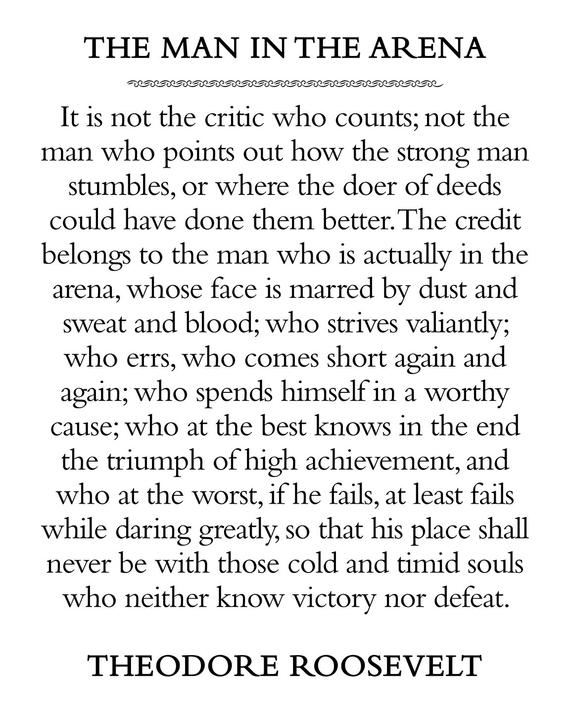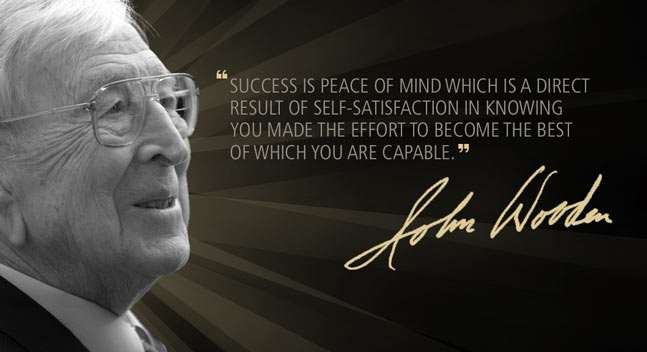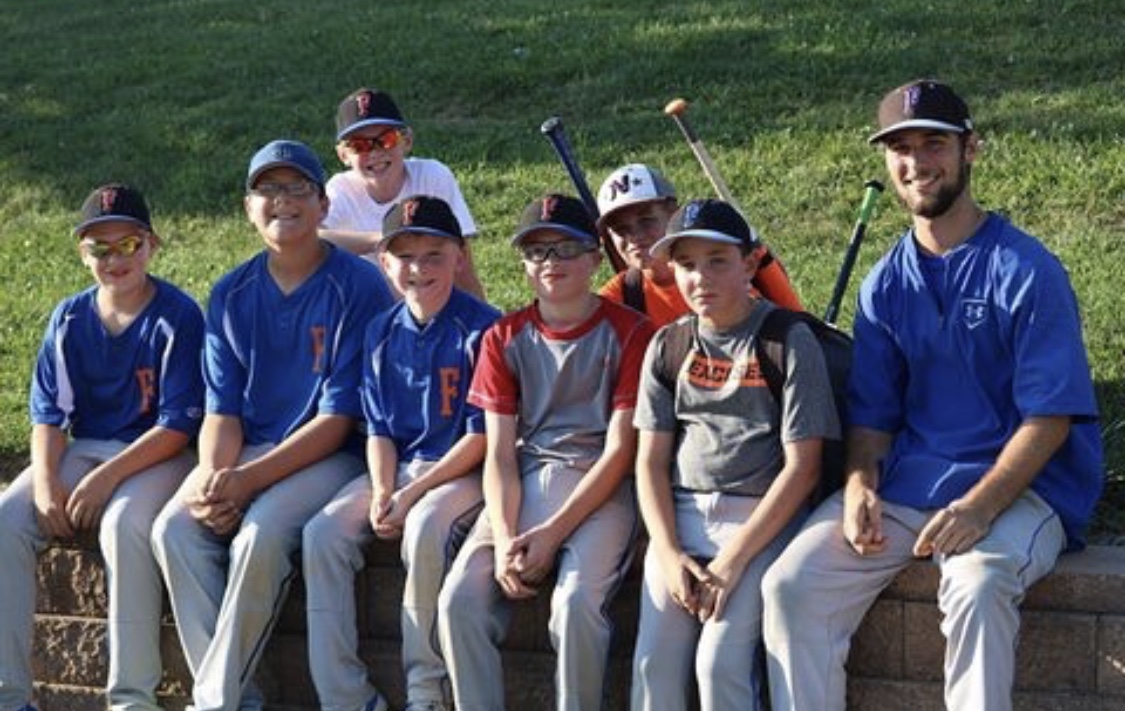“Our job is to make change, connect with people, interact with them in a way that leaves them better than we found them and more able to get where they’d like to go. Every time we waste that opportunity, every page or sentence that doesn’t do enough to advance the cause, is a waste.” – Marc Megna
As coaches we’re constantly searching for that next piece of information that is going to help our kids. We’re looking for drills, cues, and other physical tactics that will help take our coaching to the next level. We experiment with different methods, tools, and use our experiences to refine future training sessions. We spend so much time invested into the physical part of the game and how we can build better athletes – but are we equally invested into the human being in front of us?
For everything we do to help build a better athlete, we cannot forget that we are coaching a human being that has a personality, emotions, feelings, motivations, and drives. We all come from a variety of backgrounds and share unique experiences that mold our interpretations and perspectives. We’re constantly being shaped by our interactions with other people, the challenges we take on, how we perceive shortcomings and success, and what makes us feel fulfilled or unfulfilled. There is nothing more complex in this world than a human being. If we automatically assume we know how to deal with the human portion and jump straight to the athlete, we are terribly mistaken.
For everything we invest into the physiology side of things, we need to at least equally invest in understanding how humans operate. Each kid we train is going to have a multitude of thoughts, opinions, and is going to perceive things slightly different than us. Some kids will have stronger personalities and others will be more introverted. Some are going to be visual learners while others may be kinesthetic or auditory learners. Trying to coach these types of individuals in a vacuum will not work. There’s a reason why legendary basketball coach John Wooden never treated all of his players the same. If we know that no two kids are ever the same, why would we treat them the same way? How do we know how to treat them differently if we never take the time to work on it?
Our effectiveness as a coach is at the constraint of our ability to understand and relate to the human beings we teach.
Our effectiveness as a coach is at the constraint of our ability to understand and relate to the human beings we teach. If we put the athlete before the human being, we are neglecting the very thing that makes that individual unique. If kids can’t see that we care about them outside of their sport, they’re not going to care much about what we tell them in their sport. You may think that knowing the kid’s name, where he came from, or what he likes to do takes away from your training time, but it’s actually maximizing your ability to influence them. Ken Ravizza – one of the early pioneers in bringing the mental game to baseball – said is best: “Kids don’t care how much you know until they know how much you care.”
Blaming the shortcomings of our athletes on their inability to “buy-in” without reflecting on what we could have done better is known as fundamental attribution error. In essence, we shift blame to make ourselves feel better about a situation where our coaching did not help. However, Brett Bartholomew – strength coach and founder of Art of Coaching – explains that buy-in is simply trust plus commitment. If you haven’t given athletes a reason to trust you, they are not going to buy-in no matter how hard you coach them. This is why coaching the human being is so important. If you haven’t taken the time to understand your kids outside of their sport, they’ll have little reason to think you care about them. This erodes trust and will be a huge barrier if you want to have any kind of influence in their career. If they trust you and see that you care about them as a person, they’re going to be committed to you. This is where you can start doing some meaningful stuff as a coach.
We work in a relationship-driven profession. What you get out of kids is going to largely depend on what you put into them. Just the way you take notes about a training session, it is worth setting aside some time and space where you can jot down things about an athlete that will get you to know them better as a person. You’re not going to have the best relationship with all of them, but making the time to invest in your kids will help all of your relationships improve. When you have great relationships with your kids, you have the ability to bring the most out of them. This is all you can ask for as a coach.
Below are some tips to help you start doing this.
- Know the athlete’s first name
You might have laughed when you read this one, but think about it. How many times have we introduced ourselves to an athlete, asked for their name, and then 15 minutes later we totally forget it? If we’re lucky, they’re wearing their last name on their back and we can bail ourselves out by using “nice work (insert last name)” or “great stuff big guy.” It’s easy to pull out the cliches and hand out some fist bumps, but how often do we reflect and really try to remember someone’s entire name? More specifically, do we even know the first name of our athletes?
This piece of advice comes straight from Dale Carnegie’s timeless read How to Win Friends and Influence People. Carnegie said:
“Most people don’t remember names, for the simple reason that they won’t take the time and energy necessary to concentrate and repeat and fix the names indelibly in their minds. . . We should be aware of the magic contained in a name and realize that this single item is wholly and completely owned by the person whom we are dealing. . . and nobody else.”
Our name shares a unique connotation that is only recognizable to us. Think about how you’d respond to a request when you hear your name vs. hearing “hey sport/man/guy/etc.” If someone takes the time to remember and use your name when talking to you, it’s going to get your attention and you’re going to be more likely to do what they ask. If they can’t remember something you told them 10 minutes ago, you’re probably not going to think of them the same way. We learn a lot about a person in the first few interactions we have with them. If you want to show someone that you care, call them by their first name. You’d be amazed what a difference it makes.
“Remember that a person’s name is to that person the sweetest and most important sound in any language.” – Dale Carnegie
Don’t use a bad memory, a busy schedule, or “I’m really bad with names” as an excuse for why you can’t concentrate and remember someone’s first name. Ask for it, repeat it, and use it as much as possible. Carnegie says it best: “Remember that a person’s name is to that person the sweetest and most important sound in any language.”
- Know their family
An athlete’s family is the most influential group of people they will ever come into contact with throughout their life. These people are with the athlete all the time and help give them structure, support, encouragement, and an opportunity to live out their dream on the playing field. If you want to build trust early on, it is worth taking the time to build a relationship with their family. If you go out of your way and learn the names of their parents, their occupations, siblings, and their interests, the kid and his parents will notice. Just like names, doing these things requires no talent – only focus, concentration, and a little bit of work.
I think coaches too commonly point fingers at parents and describe how difficult it is to deal with them. If you want to be effective as a coach, you can’t avoid conversations with parents because you don’t like to deal with them. If you aren’t able to talk to parents, genuinely listen to them, and explain the what, why, and how behind your training, they have no reason to trust you with their kid. Any parent out there is willing to die for their kid. They’re not involved in their careers because they want to sabotage them – they want the very best for them. If you don’t understand the importance of interacting with parents and understanding their wants, desires, and concerns, you’re not going to keep the kid around.
Parents can be your best friend or your worst nightmare. Show them that they’re very important to you and they’ll do the same to you. It’s not always going to be perfect, but they will respect you if you make the effort to hear them out. Their kid will notice too.
- Know what their interests are outside of sports
You only see kids for a small portion of the day as coaches. There’s a lot that goes on outside the playing field that is very important to that athlete. This includes other sports, hobbies, school, music, and other ways they like to spend their free time. Some kids may love to play video games or pull out a favorite Netflix show after school. Others may like to crack a book or journal about the day. Some kids are huge sports fans and can rattle off the starting lineup for their favorite baseball team. Other kids may be more inclined to go out and play pick up sports instead of watching them. Finding something they really enjoy gives you the opportunity to get them to open up. The more they talk, the more comfortable they start to become around you.
Knowing their extracurricular involvement can also give you some leverage when finding ways to come up with language that sticks. Instead of telling a kid what a good ready position looks like, tell him to guard someone in basketball. This is what Brett Bartholomew describes in his book Conscious Coaching as talking in color. Instead of just telling kids what to do, explain it to them using language that they would understand. Having a hitter who can’t pick up the ball with two eyes? Tell them to watch their favorite TV show on a big screen in center field. Can’t figure out how to fix a flailing glove side? Tell the kid to use his glove arm as his scope just like he’d use it in Fortnite. There is no right or wrong answer for the messages you create to help things stick. The more creative the better.
Knowing kids outside of their sport gives you the ability to open communication lines that will help further your effectiveness as a coach. Don’t miss out on these opportunities.
- Find things that you can relate to
This one works with the last point of getting to know kids outside of their sport, but I thought it was worth explaining this one on its own for a few reasons. For one, being able to relate to a kid is much more powerful than just knowing something about a kid. Having a commonality in terms of interest or experience is a great way to start a conversation, break down a problem, and collaborate to find the best solution. This is a big reason why a lot of good coaches played the sport they coach growing up. They know first hand the highs and lows from playing, the challenges you’ll face, the solutions they tried, and things that other teammates have tried as well. Instead of just telling kids what to do, they can share their own experiences and make it a much more collaborative environment.
Finding things to relate to is also going to help build trust. You make yourself more human by sharing with kids your love for video games, basketball, or reading. Kids want to be able to talk about things outside of their sport and share experiences with you. If you can open up these communication channels with kids, you give yourself the ability to reach them on a much deeper level. If you have a superficial understanding of the human being you’re dealing with, your influence will only go so far.
- Ask for their input
One of the most important things you can do as a coach is involve your athletes in their training process. One of the best ways you can do this is by asking a simple question: “What do you feel?” Instead of just talking the kid’s ear off, you’re inviting him to do the talking and offer feedback. By getting your athletes to open up and offer their thoughts, you give yourself the ability to understand where they’re coming from, what they’re focusing on, what’s clicking, and what doesn’t make sense. Asking how they feel doesn’t get you any of this and usually gets you the answer “good.”
As you get the athlete to talk more, you start to understand their language. You get a feel for the cues and words they use to create specific moves. Some guys may just see the ball and smash it. Other guys may need to think about being smooth or trying to stay on the ball longer. Telling a kid to keep his eye on the ball (as if they were trying to hit blindfolded) is not as valuable as having a kid tell you he’s trying to see it on to the bat longer. When you can speak their language, your connection and influence becomes much more effective.
The answers you seek are the right questions away. Get kids to open up about their training, listen to them, and use their feedback to help improve your ability to collaborate and solve problems. Make them feel heard and get them involved in their training process. It’s their career – not yours.
- Keep track of important events
All of our kids have important and exciting things going on off the field. Ask about them, keep track of them, and follow up about them. This could be anything from a birthday, band concert, family vacation, basketball game, a big test, or a college visit. If it’s important to them, it should be important to you. Be a part of their life and show them that you’re excited about the things that are important to them. It’ll mean more to them than it will ever mean to you.
- Show vulnerability
We’re not perfect as coaches. We have faults, shortcomings, and we fear the same things our kids do. We’ve all faced obstacles, adversity, and been in situations where we’ve doubted our ability to teach and lead. At the same time, we’re a mentor to kids who all have “stuff” going on in their lives. This could be anything from issues at home, problems in school, breaking up with their significant other, lacking confidence in their abilities, or trying to juggle a job with training, school, and playing their sport. Kids aren’t looking for a perfect leader – they’re looking for someone that can be on the same level with them. They want to relate to someone who’s felt pain and who’s been in the same situations that they have. They don’t need a leader with a bulletproof vest – they need a leader who’s willing to take off the armor and be vulnerable.
“Our ability to be daring leaders will never be greater than our capacity for vulnerability.” – Brené Brown
Brené Brown, researcher and bestselling author, talked about the importance of being vulnerable in her book Daring Greatly. She said, “You can’t get to courage without rumbling with vulnerability. . . Our ability to be daring leaders will never be greater than our capacity for vulnerability.” Brown defines vulnerability as, “The emotion that we experience during times of uncertainty, risk, and emotional exposure.” Moments where we may feel vulnerable as a coach include bringing up parts of our past that we’re not proud of, admitting we were wrong about something, benching your star player because he violated team rules, relieving a good friend on your staff, or telling a player he can no longer be a part of our program. All of these moments challenge us to make a lonely decision. Facing these situations head on requires courage that we can only access by being vulnerable.
Showing vulnerability is not a sign of weakness – it’s a sign of strength. It is a difficult thing to stand out in the crowd and make decisions that put you in the open. If you want to lead and be a mentor to young men and women, you can’t hide from these moments. “Embrace the suck” and be present when everything is going wrong. If we’re going to see our kids on some of their worst days, we need to be visible on ours. Being a great coach doesn’t require perfection, but it does demand authenticity. You can’t maximize your influence if kids can’t see who you really are. Brown said it best: “We need to trust to be vulnerable, and we need to be vulnerable to trust.”
Theodore Roosevelt described the need to be vulnerable in “The Man in the Arena.” It reads:

Don’t run away from moments that challenge us. Be present, be transparent, and be vulnerable – your kids need it.
- Keep it real
Kids don’t need wishy washy motivational speeches, sandwiched criticism, or for you to tell them it’s alright when it’s really not. They need you to be real with them. They need a mentor who’s not afraid to say the things they need to hear. Shielding kids from the truth because you’re afraid it will hurt them is not helping them. Brené Brown says it best: “Clear is kind. Unclear is unkind.”
In the Art of Coaching podcast Episode 38, Michael Boyle – owner of Mike Boyle Strength and Conditioning – brought up the sad reality that we live in a consumer based culture where people will lie to get in your pockets. We have coaches and programs up the ass that are destined to add 10 mph to your fastball or get you into the Division I school of your dreams. We have plenty of people who are more than willing to share their greatest success stories and paint them through social media channels that only show you the good stuff. As a result, we’re blinded to the moments that aren’t so glamorous.
The large majority of the athletes we train are never going to make it professionally. We’re going to work with some athletes who regress with us. If you’re not able to recollect a time where you made an athlete worse, you’re lying to yourself. Kids don’t need a coach who can guarantee them something that they simply can’t promise. They need someone who’s going to keep it real with them. We can’t make promises we can’t afford to keep. We can’t let a kid think he’s Division I material when he can’t hit 82 on a good day. We can’t lie to kids because it will make them feel better. We’re only hurting them in the long run.
If there’s anything we can guarantee kids throughout this process, we can guarantee them honesty with themselves. If they show up every day, work their ass off, and exhaust every resource possible to become the best version of themselves on a daily basis, you have the privilege of looking yourself in the mirror without remorse. In essence, you’ve achieved John Wooden’s definition of success: “Success is a peace of mind which is a direct result of the self-satisfaction in knowing you did your best to become the best you are capable of becoming.”

Be the mentor that your kids need and tell them what they need to hear. If you keep it real with them, they’ll always respect you for it – even if they don’t like it now.


Excellent article with very important points. Our family has been fortunate enough to work with Coach Parks as he honestly and humbly walks this walk. Keep it up, Coach!